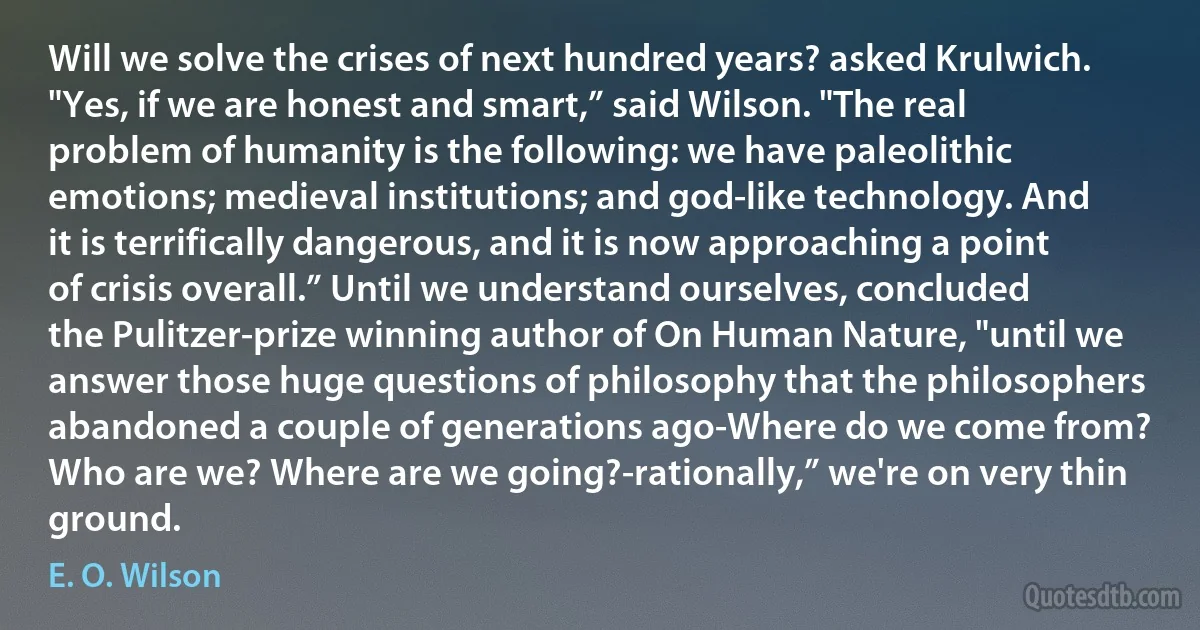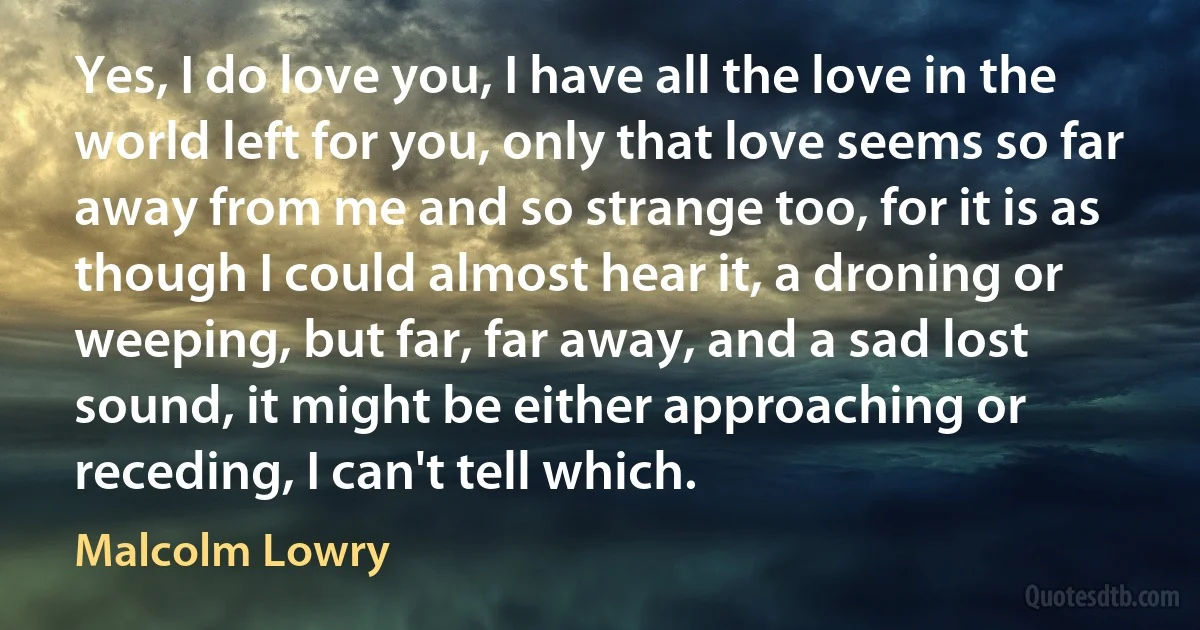Approaching Quotes - page 4
If you, or Colonel Dalrymple under you, have the power to remove one regiment you have the power to remove both. It is at your peril if you refuse. The meeting is composed of three thousand people. They have become impatient. A thousand men are already arrived from the neighborhood, and the whole country is in motion. Night is approaching. An immediate answer is expected. Both regiments or none!

Samuel Adams
.. Mother, the dawn has broken in me and I can feel the day approaching. I'm going to become somebody. If only I had been able to show Father that my life has not been fishing in troubled waters, pointless; if only I had been able to repay him for the part of himself that he planted in me! I feel that the time is soon coming when I no longer have to be ashamed and remain silent, but when I feel with pride that I am a painter..

Paula Modersohn-Becker
He saw the light gradually approaching him until it rested upon the tops of the trees. He beheld that the leaves of the trees were not consumed by it, although its brightness, apparently, was sufficient, as he at first thought, to consume everything before it. But the trees were not consumed by it, and it continued to descend until it rested upon him and enveloped him in its glorious rays. When he was thus encircled about with this pillar of fire his mind was caught away from every object that surrounded him, and he was filled with the visions of the Almighty, and he saw, in the midst of this glorious pillar of fire, two glorious personages, whose countenances shone with an exceeding great lustre. One of them spoke to him, saying, while pointing in the other, "This is my beloved Son in whom I am well pleased, hear ye him."

Orson Pratt
While clearly an impregnable masterpiece, Don Quixote suffers from one fairly serious flaw - that of outright unreadability. This reviewer should know, because he has just read it. The book bristles with beauties, charm, sublime comedy; it is also, for long stretches (approaching about 75 per cent of the whole), inhumanly dull.... Reading Don Quixote can be compared to an indefinite visit from your most impossible senior relative, with all his pranks, dirty habits, unstoppable reminiscences, and terrible cronies. When the experience is over, and the old boy checks out at last (on page 846 - the prose wedged tight, with no breaks for dialogue), you will shed tears all right: not tears of relief but tears of pride. You made it, despite all that Don Quixote could do.

Martin Amis
Reginald, in his way, was a pioneer.
None of the rest of his family had anything approaching Titian hair or a sense of humour, and they used primroses as a table decoration.
It follows that they never understood Reginald, who came down late to breakfast, and nibbled toast, and said disrespectful things about the universe. The family ate porridge, and believed in everything, even the weather forecast.

Saki
On either side of them, as they glided onwards, the rich meadow-grass seemed that morning of a freshness and a greenness unsurpassable. Never had they noticed the roses so vivid, the willow-herb so riotous, the meadow-sweet so odorous and pervading. Then the murmur of the approaching weir began to hold the air, and they felt a consciousness that they were nearing the end, whatever it might be, that surely awaited their expedition.

Kenneth Grahame
Hitherto, the well-to-do have governed this country for their own interest; and I will do them this credit-they have achieved their object. Now I trust the time is approaching for those who work and have not. My aim in life is to make life pleasanter for this great majority; I do not care if it becomes in the process less pleasant for the well-to-do minority. Take America, for instance. Cultured persons complain that the society there is vulgar; less agreeable to the delicate tastes of delicately trained minds. But it is infinitely preferable to the ordinary worker.

Joseph Chamberlain
I like spring, but it is too young. I like summer, but it is too proud. So I like best of all autumn, because its leaves are a little yellow, its tone mellower, its colours richer, and it is tinged a little with sorrow and a premonition of death. Its golden richness speaks not of the innocence of spring, nor of the power of summer, but of the mellowness and kindly wisdom of approaching age. It knows the limitations of life and is content. From a knowledge of those limitations and its richness of experience emerges a symphony of colours, richer than all, its green speaking of life and strength, its orange speaking of golden content and its purple of resignation and death.

Lin Yutang
I would not expect religion to be the right tool for sequencing the human genome and by the same token would not expect science to be the means to approaching the supernatural. But on the really interesting larger questions, such as ‘Why are we here?' or ‘Why do human beings long for spirituality?,' I find science unsatisfactory. Many superstitions have come into existence and then faded away. Faith has not, which suggests it has reality.

Francis Collins
In this world, as in our own, nearly all the chief means of production, nearly all the land, mines, factories, railways, ships, were controlled for private profit by a small minority of the population. These privileged individuals were able to force the masses to work for them on pain of starvation. The tragic farce inherent in such a system was already approaching. The owners directed the energy of the workers increasingly toward the production of more means of production rather than to the fulfilment of the needs of individual life. For machinery might bring profit to the owners; bread would not. With the increasing competition of machine with machine, profits declined, and therefore wages, and therefore effective demand for goods. Marketless products were destroyed, though bellies were unfed and backs unclad. Unemployment, disorder, and stern repression increased as the economic system disintegrated. A familiar story!

Olaf Stapledon
Our tasks are definite. The first to see that no man, woman, or child shall go hungry or unsheltered through the approaching winter.
The second is to see that our great benevolent agencies for character building, for hospitalization, for care of children and all their vast number of agencies of voluntary solicitude for the less fortunate are maintained in full strength.
The third is to maintain the bedrock principle of our liberties by the full mobilization of individual and local resources and responsibilities.
The fourth is that we may maintain the spiritual impulses in our people for generous giving and generous service-in the spirit that each is his brother's keeper.

Herbert Hoover
An occasion such as this which has brought us here can not but direct our consideration to these things. It has been a painful and difficult experience, this by which another race has been recruited to the standard of civilization and enlightenment; for that is really what has been going on; and the episodes of Negro slavery in America, of civil war, and emancipation, and, following that, the rapid advancement of the American colored people both materially and spiritually, must be recognized as parts of a long evolution by which all mankind is gradually being led to higher levels, expanding its understanding of its mission here, approaching nearer and nearer to the realization of its full and perfected destiny.

Calvin Coolidge
All these problems constantly come in the work of political and social development. But they stand for a vast progression toward better conditions, a better society, a better economic system. In approaching them, we need to have in mind the Federalist's analysis of our constitutional system: - The powers delegated to the Federal Government are few and defined; those to remain in the hands of the State government are numerous and indefinite.

Calvin Coolidge
I heard a heavy step approaching behind the great door, and saw through the chinks the gleam of a coming light. Then there was the sound of rattling chains and the clanking of massive bolts drawn back. A key was turned with the loud grating noise of long disuse, and the great door swung back.
Within, stood a tall old man, clean shaven save for a long white moustache, and clad in black from head to foot, without a single speck of colour about him anywhere. He held in his hand an antique silver lamp, in which the flame burned without a chimney or globe of any kind, throwing long quivering shadows as it flickered in the draught of the open door. The old man motioned me in with his right hand with a courtly gesture, saying in excellent English, but with a strange intonation.
"Welcome to my house! Enter freely and of your own free will!"

Bram Stoker
Basically, I write from a two person standpoint. First, I let the song take hold and I put down the idea as a raw emotional statement. Then I let it breathe and come back, approaching from more of an objective point of view. This allows me to rediscover the true meaning I intended in the beginning, shedding new light on how I can best represent that to the listener.

Bradley Joseph



